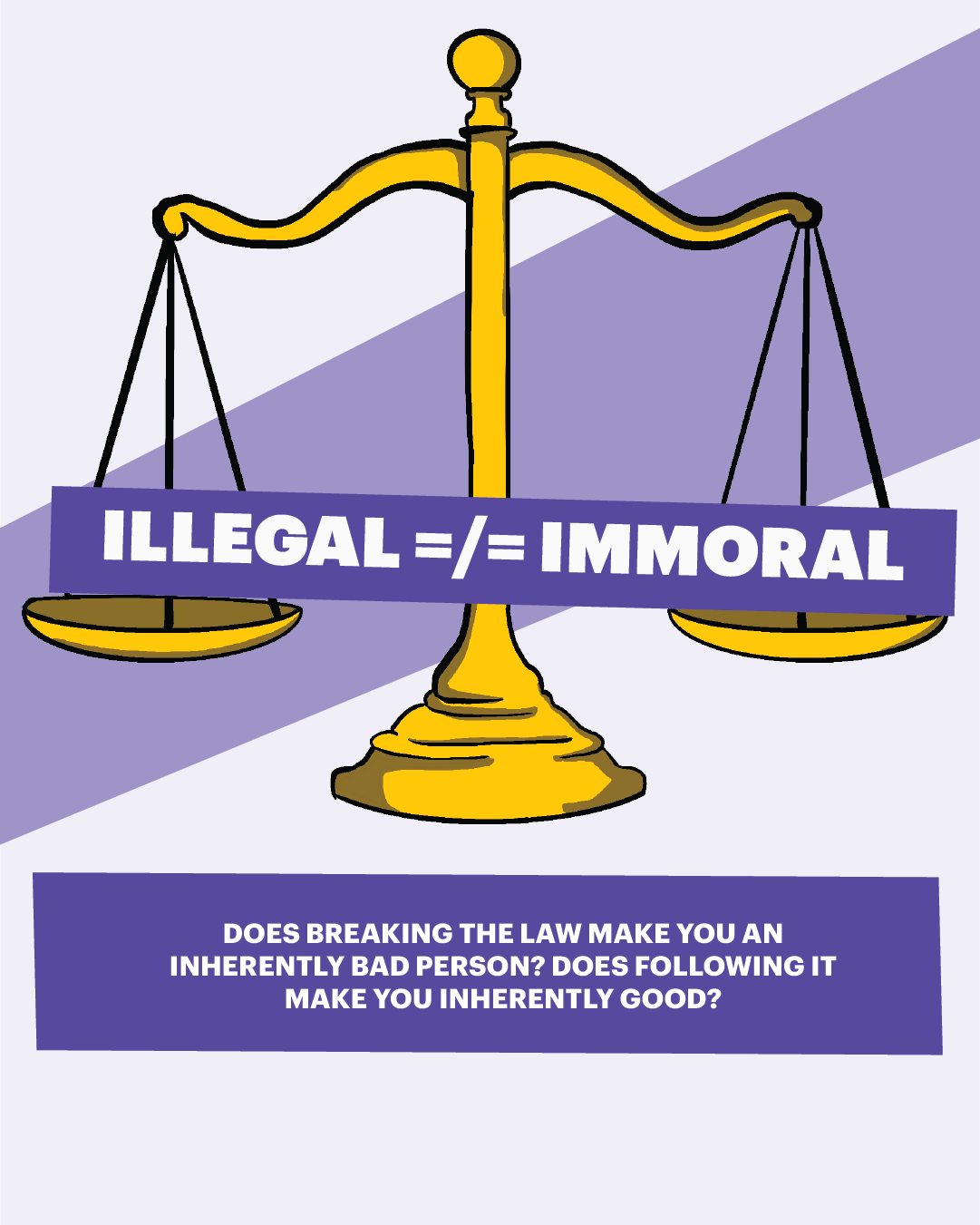
The fallacy that something that is illegal is immediately wrong and immoral is one that has continued to persevere through generations. This rigid worldview seems especially persistent among older generations, arguably due to a combination of anti-intellectualism, growing up in a time with limited access to diverse media and critical discourse (and maybe lead poisoning). Of course, you can say that things that are illegal such as rape, sexual violence, abuse, for instance, are immoral in our western world, but why is it that if someone is accused of sexual assault does little to no time compared to someone who foraged a little too well for silly little mushrooms?
It’s painfully clear that lawmakers and legal systems don’t always have their priorities straight. Yet, many people continue to treat the law as if it were objective truth. As though it reflects some divine moral code. But law is not morality. Law is power. And power protects itself.
If we go a little bit into the past and look at a previously complete monarchy –England for example—it becomes clear that the laws were… very much opinions based. By virtue of the Prerogativa Regis 1322, whales and sturgeons found in the UK are considered “Royal Fish” and must be offered to the reigning monarch. The Metropolitan Police Act 1839 makes it an offense to beat or shake carpets, rugs, or mats (except doormats before 8 am) in public thoroughfares. The Salmon Act 1986 makes it an offense to handle salmon in suspicious circumstances. This one was only 40 years ago! Though you can point finger and laugh at these laws, there’s no doubt people who were living that era read these laws and thought “yeah, fair enough.”
In my opinion—and as an international relations student—I think it is really important to not take every rule, and anything in general that the government dishes out to us as immediate, solid fact. We can look at this through a constructivist lens, see that laws are socially constructed, shaped by cultural norms, historical contexts, and, most importantly, by the interests of dominant groups. Is it immoral to camp in your car on the street? Is it immoral to open someone else’s mail that was sent to your house? To steal medicine from chemist warehouse when you can’t afford it for your sick child? To commit tax fraud? Okay maybe that one is, but that’s how the rich get richer! Using a constructivist lens, it also becomes clear that once people in charge of laws decide something isn’t so important—sexual violence for example—they can choose to make things less punishable.
I know this isn’t rocket science to most of you. But I am sure you have heard the argument “but it’s illegal!” at least once in your life. And I want to figure out why the older generation has so much trust in what is illegal. Perhaps because they were raised during eras where compliance was a form of patriotism, where questioning authority was dangerous, and where law and order were synonymous with stability. But it’s a mistake to confuse legal stability with moral clarity.
Laws were and are made by people with particular values which don’t always necessarily reflect a perfect moral compass. It’s no coincidence that many laws seem to punish the poor, the marginalised, or the desperate, while protecting those who already have everything. A true moral compass requires critical thinking, empathy, and historical awareness. And the law, more often than not, is a compass that points only toward the interests of those who hold the pen.